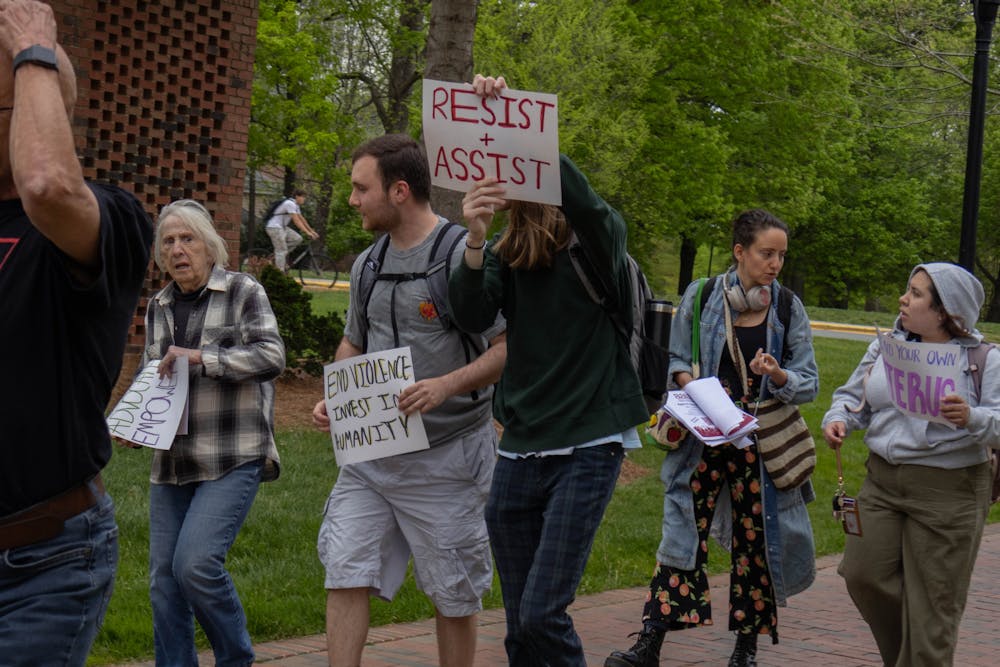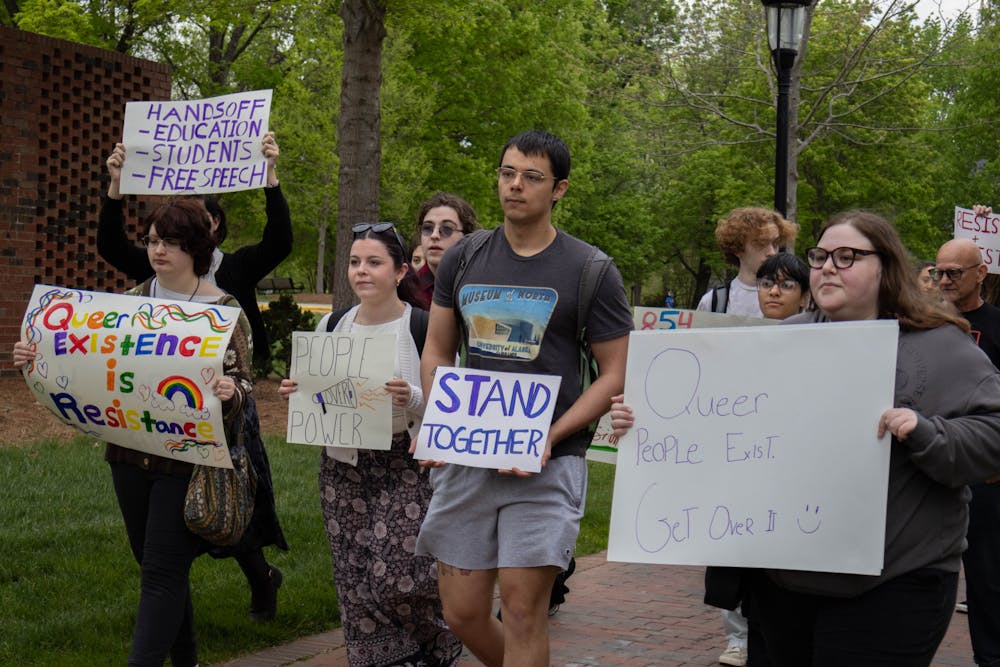The Students for Peace and Justice organization held a peaceful protest walk outside Moseley Student Center on Young Commons on the morning of April 15. According to event attendees, Together We Walk for Peace and Justice was an event held for students to join in the fight against oppression around the world.
Executive member of Students for Peace and Justice senior Mason Carter said the walk was meant to be an inclusive event for Elon students to join. They emphasized the importance of students participating during the tense climate between the current presidential administration and higher education.
“Given current events around the United States and more specifically higher ed, we thought it would be very important to do this sort of thing because student protests are more or less under fire by the current administration,” Carter said.
Students for Peace and Justice held a walk earlier in the semester but had an extremely low turnout, according to club adviser Thomas Arcaro. Arcaro said there had been a change in the organization's messaging to let people know this was happening, and the Center for Peace and Conflict Studies had also been spreading the word about the walk. Only around 15 people attended the walk, many being members of the club.
“I think we need to have both the normalization of this kind of expression, the more walks that are held the more it’s normal,” Arcaro said. “It’s also important to continue to address issues that should be important to everyone and to provide stimulus for meaningful conversation.”
Carter said they had hoped for at least 20 attendees but admitted that it has been hard for the organization to keep morale up among members because of what is going on around the country.

Students and staff walk throughout campus with signs at the Together We Walk for Peace and Justice event hosted by Elon Students for Peace and Justice on April 15.
Many of the attendees came to the event with their own signs about a number of issues including transgender rights, Palestinian freedom and free speech. There was no chanting during the walk, but members spoke among themselves about the signs they were holding and why they were walking.
The walk was not met by counter protests, but many students walking to class stopped to read the signs and stare at the procession. Carter described Elon as a politically agnostic campus.
“Doing a tangible form of activism like this, in a campus climate like Elon’s is inherently going to make a lot of people feel uncomfortable,” Carter said. “It’s not the goal to make people uncomfortable but it’s basically reckoning with the fact that like it or not, student protest, student free speech exists on campus and this is what it can look like.”
One attendee, sophomore Eden Perry said participating in these walks shows onlookers that there are people who are committed to speak out about important issues. For Perry, she was walking against U.S. and European control in Sudan, Congo and Palestine.
“We like to make sure we’re holding our signs for tours so people know that there are people on campus that are not apolitical and do have voices that we want to use,” Perry said.


